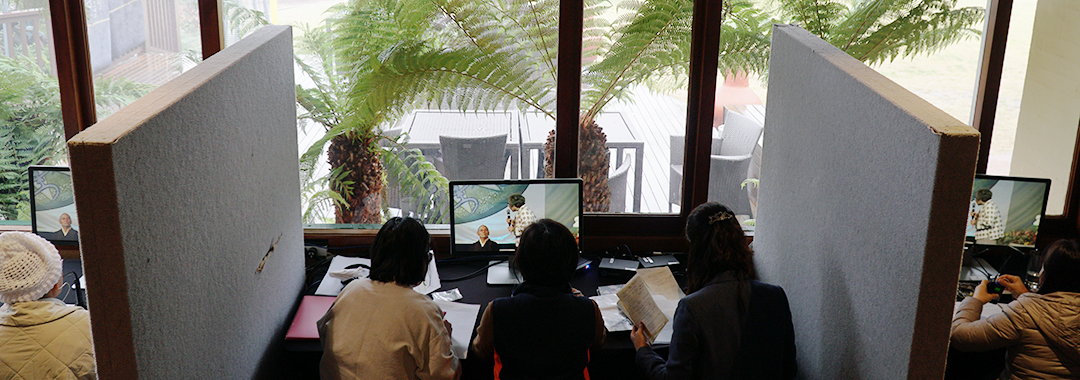Sydney Thompson
Sakyadhita Korea Publicity Assistant
Sakyadhita Korea’s Global Empowerment Program (GEP) has seen much growth through the years. When I first observed GEP 5, I was impressed by how many students had traded in their slow and relaxing Saturday mornings for one filled with fast-paced interpretation practice and learning. Now, having most recently observed the GEP 6 class and heard of the unforgettable experiences that took place at the biennial Sakyadhita international conference in Australia, I am certain that the students’ unwavering commitment and motivation have paid off. In fact, it is truly because of the students that Sakyadhita Korea’s Global Empowerment Programs have continued to develop, progress, and make a positive impact on the Buddhist community.
The Students
GEP students are of diverse backgrounds and have come from cities near and far to study together every Saturday for 12 to 15 weeks. There are usually about 20 students in each GEP cohort, all banded together by a shared sense of dedication to developing their interpretation skills so that they can help foster better communication and relations between members of Buddhist communities around the world. In the two groups that I observed, GEP 5 and 6, there were a wide range of ages and, although most were female students, we were fortunate to have a few male participants as well.
The Class Topics
When I first encountered the GEP program in 2016, the class topics were mostly confined to simple English language lessons and discussions around general Buddhist teachings and ideas. However, just two years later, the succeeding GEP 6 class framework showed quite a bit of development and a far more diverse group of speakers and instructors was invited to lead a session of the Saturday class each week. To name a few, Dae Bong Sunim was invited to discuss “the current status of female Buddhists in America” and engage students in a peaceful meditation session; Nampet Panichpant-Michelsen joined us to share her knowledge of Theravada Buddhism and Thai Buddhist culture; and Professor Scott Scattergood engaged the class in a fun and interactive English phonetics lesson.
The Action Team
While an interpretation team did form out the GEP 5 group, the action team that came about after the GEP 6 team was also much more developed. Essentially, the action team is comprised of students and leaders from the preceding GEP class that have committed to further enhancing and maintaining their interpretation skills through extra classes and discussion. Many of the action team students eventually go on to become volunteers at the Sakyadhita international conferences held biennially. The most recent GEP 6 action team has done an excellent job of not only providing invaluable reading and listening practice to its future volunteer interpreters but has also put together activities such as translation retreats and temple stays that are engaging for students.
Looking Ahead
This past summer was an extremely fruitful time for Sakyadhita. For the first time ever, the Sakyadhita International conference was held in a Western country, an experience very exciting for our Sakyadhita Korea interpretation team. Still full of excitement and unforgettable memories from the 2019 conference in Australia, Sakyadhita Korea has already started preparing for the next Global Empowerment Program. The upcoming GEP 7 is expected to go into session starting fall 2020, and we are already looking forward to all the new students ready to embark on the path of becoming future leaders and interpreters for the global Buddhist community!

